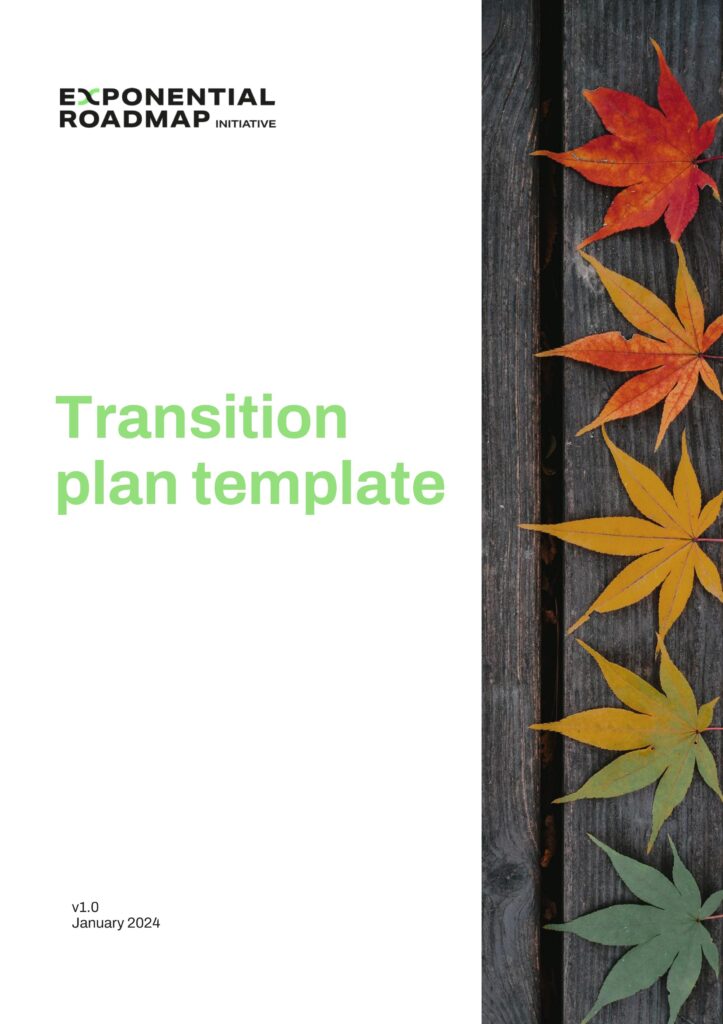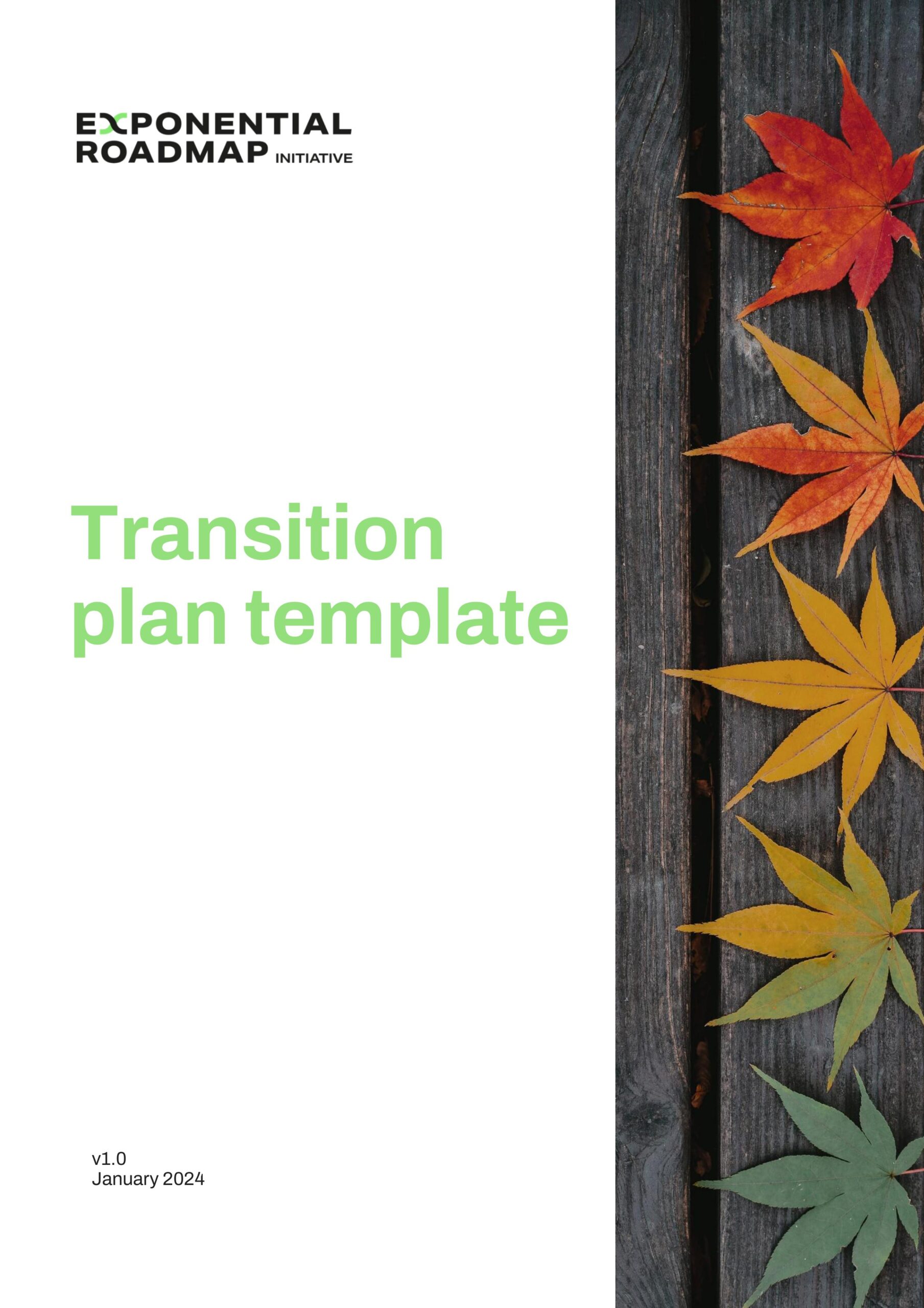Why transition plans matter
Transition plans will soon be required in US and EU legislation. Developing and publishing a transition plan is also a requirement of the UN Climate Change High-Level Champions’ Race to Zero campaign, and thus essential for joining or remaining in any associated initiatives.
Other stakeholders, too, will be looking to your transition plan to support their decision making. These include financial institutions, suppliers as well as media and policymakers.
But writing a transition plan is also an important step in operationalising your company’s overall climate strategy and will help your company succeed in the long term. A transition plan turns long-term transformational targets into a step-by-step roadmap for creating sustainable change within your company.
How to use Exponential Roadmap Initiative’s guidance
The Exponential Roadmap Initiative’s free-to-use transition plan template is in line with the evolving regulation and guidance from 12 different organisations.
This template has been prepared in such a way that you can directly write into and adjust formatting to reflect your company’s styles.
A complementary mapping offers more detail as to which transition plan elements is required or requested by which initiative or organisation.
Transition plans aligned with HLEG recommendations
At COP27, the UN Secretary General’s High Level Expert Group (HLEG) for net zero commitments of non-state entities, issued recommendations for what credible net zero targets of companies, cities and financial institutions would look like. The UN then adapted these recommendations into a checklist for developing HLEG-aligned transition plans. The Exponential Roadmap Initiative supported ten companies in developing such plans and prepared an open-source annotated checklist to facilitate the development of HLEG-aligned transition plans.
Icebug, a Swedish outdoor shoe manufacturer and member of the Exponential Roadmap Initiative, in 2023 published an HLEG-aligned transition plan.
Validating transition plans
An Exponential Roadmap Initiative mapping shows that validating transition plans is likely to have at least two aspects:
- Validating inclusion: ensuring that recommended points have been covered in a transition plan (eg that a given transition plan document contains a date for fossil fuel phase out)
- Validating ambition: ensuring that the planned actions meet ambition thresholds (e.g. that a company’s planned date for phasing out fossil fuels is soon enough)
The United Nations Framework Convention on Climate Change (UNFCCC) has been conducting an independent consultation that is to result in recommendations for a framework to both provide recognition for and accountability on the climate efforts of such actors.
Exponential Roadmap Initiative’s submitted views to this consultation, arguing that
the text in any validation framework describing requirements for transition plans will need to be carefully crafted in order to make sure requirements are understandable to the reader/user and are interpreted in the same way by all stakeholders – both by validators and by companies subject to validation.
Excerpts from our events on transition plans
More resources
- Transition plans as a driver for business transformation towards climate solutions: Exponential Roadmap Initiative’s message at COP28 (blog post)
- COP28: Countries agree to ‘transition away’ from fossil fuels, business key to showing that a rapid phase out is achievable (blog post)
- 5 learnings and 3 calls to action on 1.5°C-aligned transition plans (opinion in Context News)
Latest news
Opinion: Why companies need to put profitability at the centre of transition planning
Johan Falk and Annachiara Torciano write in FT Sustainable Views about why companies must prioritize profitability in their transition planning to effectively integrate net-zero targets into the core of their business strategy.
COP29: Leveraging business, policy and finance to reach positive tipping points ahead of COP30
As 2024 draws to a close, only five years remain to halve emissions and prevent catastrophic global warming. At this COP29 session, Johan Rockström did the math: “That’s a 7.5% reduction per year to have any chance of staying within the 1.5°C temperature limit.”
COP29: Driving the Exponential Race to the Top
Learn from this COP29 session how the race to the top can transform the green transition from burden-sharing to seizing opportunities, making it both profitable and a business advantage.


